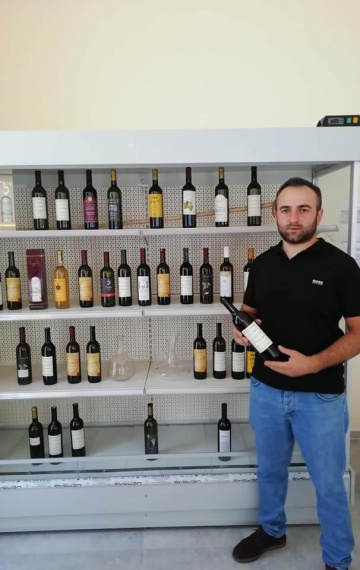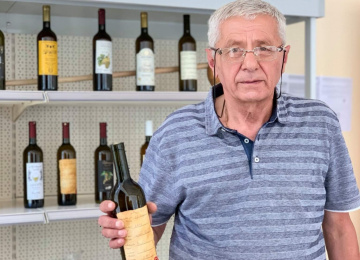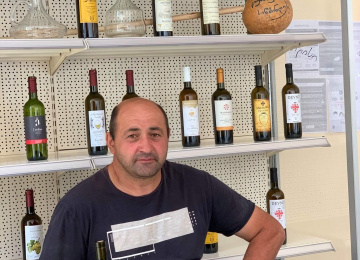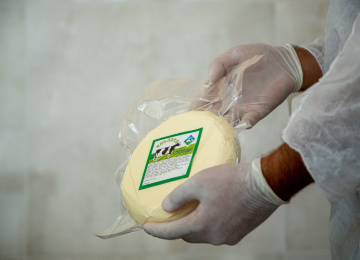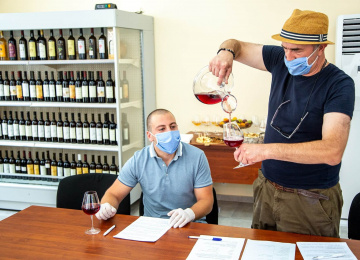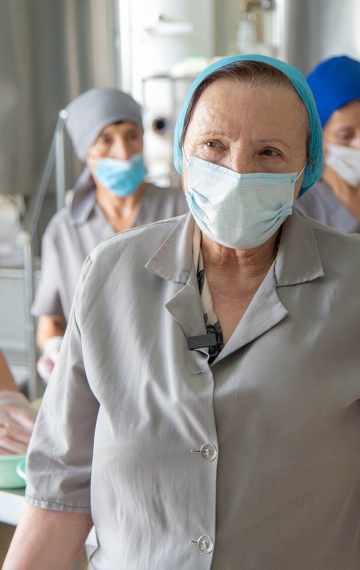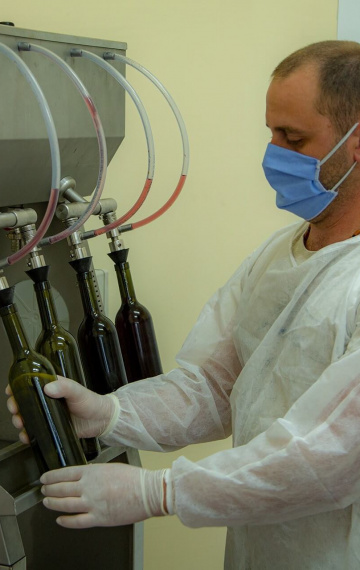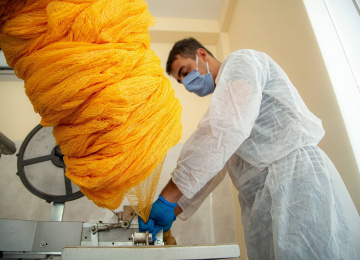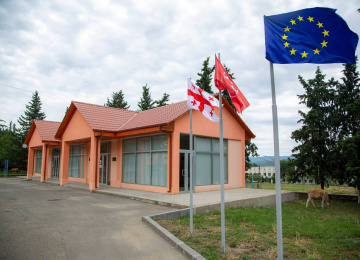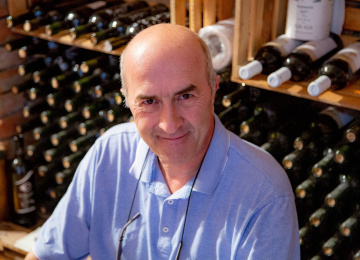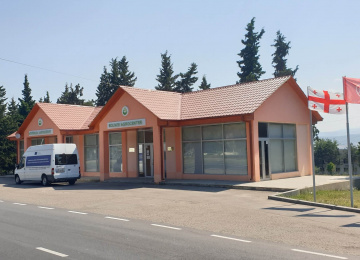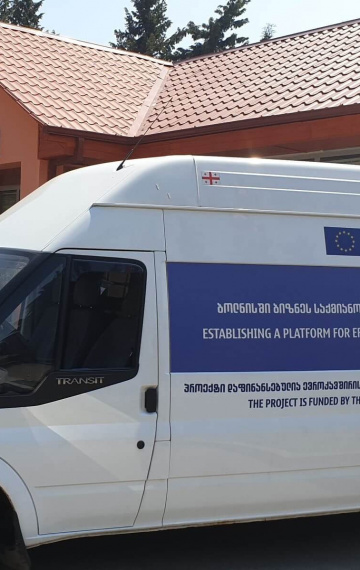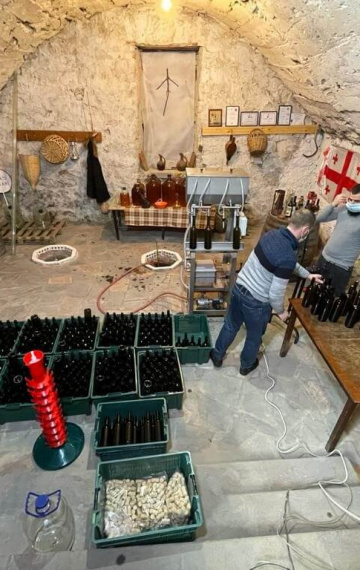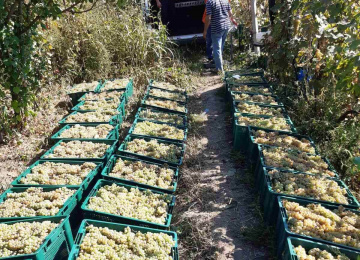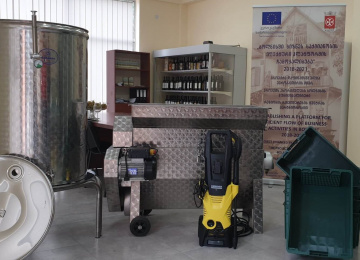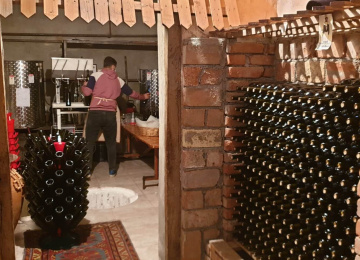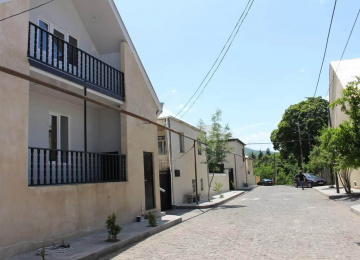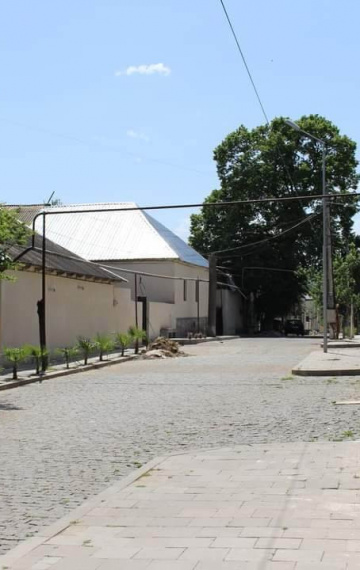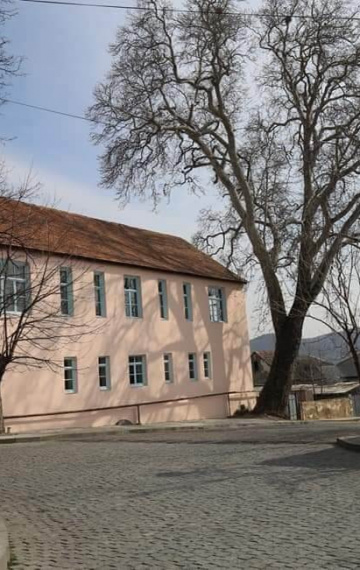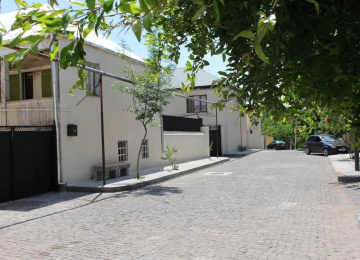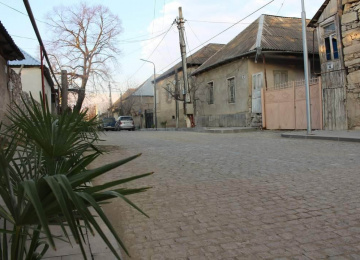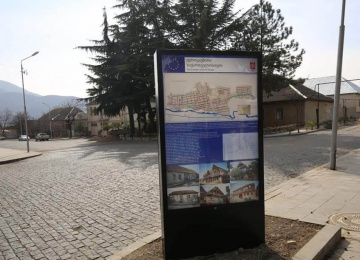
While enjoying a glass of delicious wine, have you ever thought about the way it travels to you? This cycle before a product gets to the consumer’s table is exactly what many producers find most challenging. “Brothers’ Cellar,” run by Guram and Giorgi Avkopashvili in Bolnisi, Georgia, has been producing natural Georgian wine since 2015. However, like other winemakers, the small family winery also faced problems with filtering, bottling, labelling and storing old wine.
Meanwhile, the Municipality of Bolnisi opened an Agro Centre as part of the “Mayors for Economic Growth” initiative under the EU4Business umbrella, which is helping improve the livelihoods of local residents by providing the practical tools and know-how to operate their business more effectively. Up-to-date packaging and labelling equipment that meets European standards is available at the Centre at affordable prices, supporting “Brothers’ Cellar” to market wine on the domestic market and export it in the future.
Responding to local needs and challenges
Bolnisi is a multiethnic, mostly rural municipality in Georgia, where 63% of a population is employed in agriculture. Despite available opportunities in the farm sector, local producers rarely managed to optimize production and maximize profits.
Adapted to challenges faced by local entrepreneurs, the Agro Centre now offers expertise and consulting in finance and accounting, as well as marketing and legal services in the Georgian, Armenian and Azerbaijani languages. Through the use of modern technology, producers benefit from refrigerating, labelling, wrapping, packaging, bottling and filtering services for different food products and wines at affordable prices.
“This is one of the best projects that has ever been implemented in Bolnisi,” says Guram Avkopashvili. “It has facilitated local people’s work and given them a chance to expand production. Up to 900 family wineries in the Bolnisi area will be able to use the services of the Agro Centre.”
Helping local wineries and farmers expand
Agro Centre’s activities are based on a Local Economic Development Plan defining the main economic priorities and goals put together by the Bolnisi Municipality when it joined on to the European Union’s “Mayors for Economic Growth” initiative and won the M4EG Call for Pioneer Projects with a budget of €380,000, €320,000 of which was EU support. The premises for the Agro Centre were built by the Bolnisi Municipality at its own cost.
“When the municipal authorities saw the EU’s support, they decided to construct a building,” notes Natalia Kakabadze, the M4EG project manager. “This is an example of how a small EU initiative can grow into something big.”
Through the study of the local market, its potential, and the needs of local producers and entrepreneurs, Bolnisi helped to identify three areas with a high potential for economic development: agriculture, winemaking and tourism. Farmers usually sold their produce for further processing, finding themselves at the very beginning of the local agricultural value chain. Now they can increase their technical understanding and knowledge about production standards and ensure high quality storage, packaging, distribution and marketing of their produce, boosting their income.
“At this point we needed to do some paperwork for our enterprise and we managed it with legal assistance from the Centre,” reports Meri Makharadze, founder of a cheese-making enterprise called Disveli that has been another beneficiary of the Agro Centre. The enterprise produces a variety of Georgian cheese from local milk and hopes to expand, for which it will also benefit from packaging services the Centre offers.
Tourism as a priority
In addition to winemaking and quality cheeses, Bolnisi offers many attractions to visitors, whether it’s Bolnisi Sioni, the oldest church in Georgia, dating from the 5th century, or the remnants of the region’s German community. As tourism is another priority for promotion, Bolnisi has invested in the renovation of the historic neighbourhood of Katharinenfeld, where 95 German families from Swabia founded a colony in the 19th century.
After improving the tourism infrastructure of one of the streets of Katharinenfeld, Stephania Street, by laying sidewalks and a road, installing streetlights to make the thoroughfare pedestrian-friendly, and putting up tourist signs, local residents were eager to turn their homes into guest houses, open markets and restaurants. A Katharinenfeld marketing strategy has also been developed to attract tourists to the municipality.
Once tourism infrastructure and locally-produced wines and farm products are at the necessary level of quality, Bolnisi will be ready to host an influx of visitors. This charming Georgian town can clearly offer a lot more to enjoy and discover.

